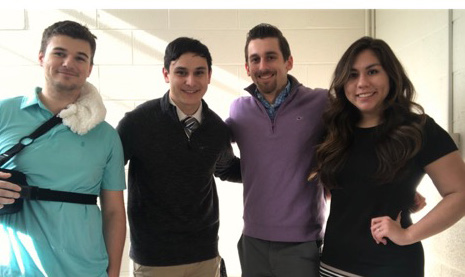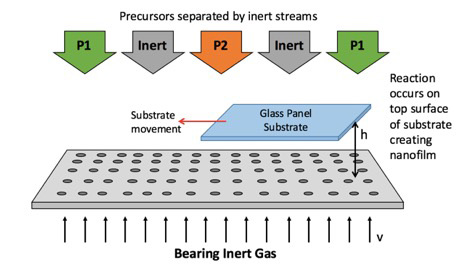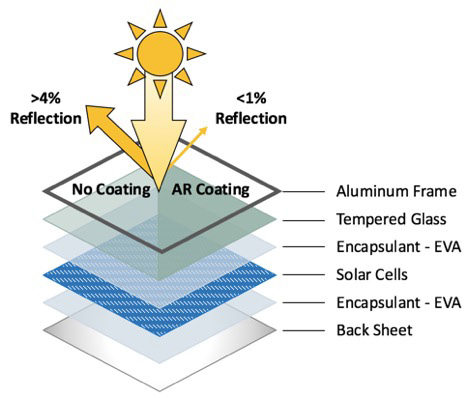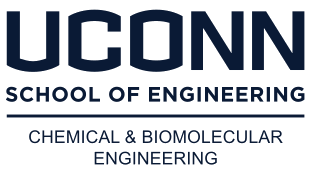
Figure 1

Figure 2

Chemical and Biomolecular Engineering
Team 3
Team Members |
Faculty Advisor |
Alec Djordjevic |
Brian Willis Sponsor Chemical and Biomolecular Engineering |
sponsored by

Advanced coatings are enabling a variety of new products, many with applications in energy savings. Spatial atomic layer deposition (SALD) is a promising reactor type for efficiently depositing these coatings on large substrates. This project considers anti-reflective coatings for decreasing reflection based energy loss of solar panels by over 75% and determines the scalability of a SALD process by fluid mechanic and thermodynamic analysis. The goal is to make a recommendation on whether this is a profitable method based on practicality, safety, ethics and economic evaluation. Additionally, there is a need for a senior lab that enables students to get a thorough understanding of fluid mechanics and its applications. The other main goal of this project is to develop a lab in which students derive the same fluidic models used for the above scale-up portion of this project, and quantify the cogency of such models. This facet of our project fulfills the need for a senior lab and allows for the validation of the model equations that are applied to the scale up analysis described above. The project impacts include the enhancement of the CHEG department through the addition of a new lab experiment, as well as an advancement in the field of eco-friendly nanofilms, currently held back by inefficient and expensive deposition techniques.
